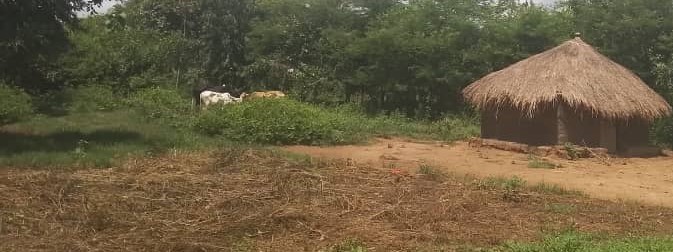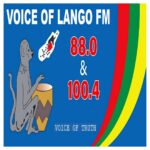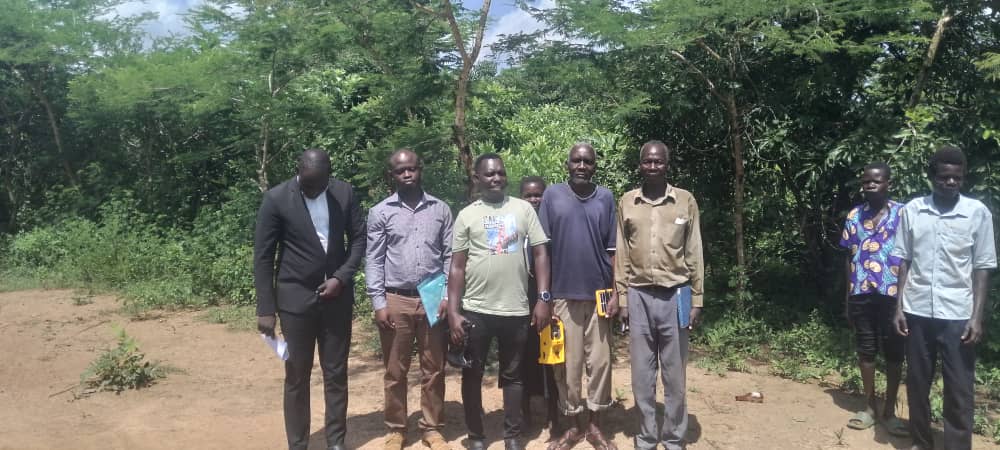
 Voice of Lango
Voice of Lango

 Voice of Lango
Voice of Lango
30 June 2024, 5:43 pm

By Odota Adubango Moureen
Uganda faces alarming soil fertility decline and food security threats due to erosion and poor management. Local initiatives promote conservation practices and sustainable farming to mitigate risks and protect ecosystems, supported by NGOs and community efforts.
Uganda’s soil fertility is declining at an alarming rate due to land degradation, according to the 13th national state of environment report (2018-2019) by the National Environment Management Authority (NEMA). The report ranks soil fertility in the country as low to medium.
Despite 80% of Uganda’s population being engaged in agriculture, the Uganda Bureau of Statistics’ annual agriculture report (2018) indicates a decline in soil productivity. NEMA attributes this decline to soil erosion and poor land management practices, posing a threat to food security for the country’s estimated 40 million people.
In the Lango Subregion, groups of farmers, supported by NGOs, local government leaders, and environmental and agricultural experts, are adopting soil and water conservation practices to enhance soil fertility, ensure food security, and protect the environment.
In Otuke district, farmers from the Cung Atek Farmers’ Group in Barlwala village, Arwotngo parish, Okwang subcounty, are implementing various soil conservation interventions with the assistance of Farm Radio International.
Julius Peter Ocen, a member of the group, explains that they practice crop rotation, bush fallowing, and mulching, among other techniques, to promote soil regeneration, control soil pests and diseases, and enrich the soil with organic matter.
These measures aim to ensure healthy crop growth and improved yields while mitigating the sedimentation of wetlands caused by soil erosion.
Another group member, Ocen Nixon, emphasised the importance of protecting wetlands to support rain formation, removing plastics from their gardens to enhance soil drainage, and limiting the number of animals grazed on land to prevent soil erosion.
Aceng Betty, another member of the group, mentioned that with support from the International Union for Conservation of Nature (IUCN), they have dug fish ponds and abandoned rice cultivation in wetlands in favour of fish farming. This shift aims to minimise wetland degradation and protect aquatic species. She said that through fish farming, they have boosted their income and improved their families’ nutrition.
Betty Akello, another member of the group, mentioned that in addition to income generated from fish farming, the fishpond also supplies water for irrigation, ensuring year-round farming and enhancing crop yields. In Alebtong district, farmers from the Ogwok Kan Urumu Wa group in Acaba village, Omarari parish, Omoro subcounty, have implemented various soil and water conservation methods.
Odongo James Brian, the group’s chairperson, explained that they practice contour ploughing in hilly areas to prevent soil erosion, plant trees to enhance rain formation for crop growth, and protect wetland buffer zones to reduce pollution and sedimentation caused by runoff. By safeguarding wetlands, Odongo emphasised that they ensure access to water for agricultural production
Allan Okello, the coordinator of Kijani Forestry, a Non-Governmental Organisation dedicated to combating climate change through tree planting in Kole and Lira districts, outlined their conservation efforts to protect soil and water resources.
Watese Anne, the chairperson of the Nyekobalikare farmers’ group in Alwala village, Abeli parish, Akalo subcounty, Kole district, mentioned that they are cultivating trees donated by Kijani Forestry to enhance soil fertility, improve air quality, and increase family income through the sale of tree products.
Ecat Stephen, the Country Programs Manager of Farm Radio International, Uganda, stated that their five-year project aims to promote rural community action on climate change adaptation and biodiversity. This includes using locally relevant, gender-inclusive, and nature-based solutions such as protecting or restoring forests and wetlands to secure and regulate water supplies. They also support the production of forest products and protect communities and infrastructure from soil erosion, landslides, and floods.
Walter Okol serves as the director, Agrisol Solutions Africa, an agribusiness enterprise in Lira city that manufactures organic fertilizer known as Bokashi to promote soil fertility restoration. The company has provided training on organic fertilizer production to 751 farmers’ groups in Oyam, Kole, and Lira districts.
Ogwang Emmanuel, a farmer from Agweng subcounty, Lira district, attests to significant success he has achieved with the use of this organic fertilizer.
Docus Alum, the Agricultural Officer of Lira district, has been conducting training sessions for farmers on agricultural techniques including crop rotation, mulching, and the use of organic fertilizers to protect soil and enhance its fertility.
Samson Obong, an agronomist technician at Ngetta Zonal Agriculture Research and Development Institute, has also trained farmers in techniques such as minimum tillage, inter cropping, and agroforestry to combat soil erosion.
Patrick Onyanga, the Senior Environment Officer of Otuke district, outlines several initiatives they are undertaking to enhance soil fertility and protect the environment. These measures include implementing tree planting programs, establishing buffer strips along wetland boundaries, and promoting conservation agriculture practices among local farmers.
Oguta Samuel, the National Environment Authority Police Officer in charge of northern Uganda, reaffirms their commitment to monitoring and raising awareness among communities about the importance of environmental protection. He emphasised that their primary objective is to ensure that these communities comply with all environmental regulations.

For more information, you can listen to a podcast on this full story.